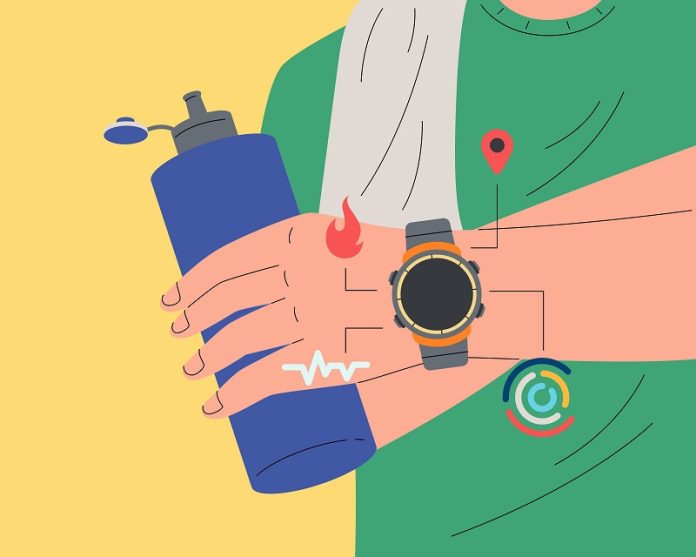
A new study shows that smartwatches may help people with type 2 diabetes (T2D) manage their condition by encouraging regular exercise.
The research, published in BMJ Open, looked at how wearable technology can support newly diagnosed T2D patients in keeping up with home-based physical activity.
Researchers from the UK and Canada followed 125 people with type 2 diabetes who took part in a program called MOTIVATE-T2D.
The program encouraged participants to slowly increase their physical activity over six months, aiming for 150 minutes of moderate to vigorous exercise each week.
The participants also received virtual support from exercise specialists who provided personal coaching.
Some participants used a smartwatch connected to a health app on their smartphone.
The watch tracked things like heart rate and movement, and this data was shared with their coach through an online platform. The smartwatches helped the participants see their progress and stay motivated.
Dr. Katie Hesketh from the University of Birmingham, one of the study’s authors, said, “We found that wearable technology helped people stick to their exercise routines, which is important for managing type 2 diabetes. This approach shows promise for improving health and quality of life.”
The results were encouraging. People who used the smartwatches and followed the exercise program showed improvements in blood sugar levels, lower blood pressure, and in some cases, lower cholesterol. Many participants also said they felt better physically and mentally.
The exercise program did not require a gym. Instead, participants were guided through workouts they could do at home, such as walking, cardio exercises, and strength training. The goal was to make exercise part of their daily life.
Participants in the study were between the ages of 40 and 75 and had been diagnosed with T2D within the past two years. They were managing their diabetes either with lifestyle changes or Metformin, a common medication for the condition.
The study had an 82% retention rate over 12 months, showing that most people were able to stick with the program. Researchers now hope to run a larger study to confirm these results and explore how cost-effective this kind of program could be.
In the future, wearable devices like smartwatches could become a key part of diabetes care, helping people stay active and healthy from the comfort of their own homes.
If you care about diabetes, please read studies that not all whole grain foods could benefit people with type 2 diabetes, and green tea could help reduce death risk in type 2 diabetes.
For more information about health, please see recent studies about unhealthy plant-based diets linked to metabolic syndrome, and results showing Mediterranean diet could help reduce the diabetes risk by one third.



